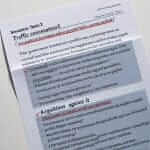As an IELTS instructor with over 20 years of experience, I often encounter questions about unusual topics that might appear in the IELTS Speaking test. One such topic that frequently sparks curiosity is the phenomenon of whale stranding, also known as whale beaching. This seemingly simple question can actually offer a wealth of discussion points relevant to the IELTS exam, particularly in the Speaking section.
Understanding the IELTS Relevance
While the topic of whale beaching might seem niche, it allows you to demonstrate several skills valued in the IELTS Speaking test:
- Lexical Resource: You can showcase your vocabulary related to marine life, environmental issues, scientific concepts, and potential human impact.
- Coherence and Cohesion: Explaining the complex reasons behind whale stranding requires clear and logical organization of your thoughts.
- Grammatical Range and Accuracy: Using a variety of grammatical structures correctly will enhance the clarity and effectiveness of your explanation.
Exploring the Reasons Behind Whale Strandings
There is no single answer to why whales beach themselves, and scientists propose a number of possible causes, including:
Natural Causes:
- Navigation Errors: Whales navigate using echolocation. Coastal waters, especially with gently sloping beaches, can disrupt their sonar, leading to disorientation and stranding.
- Geomagnetic Disturbances: Changes in the Earth’s magnetic field, perhaps due to solar storms, might interfere with whales’ internal compasses, causing them to stray off course.
- Tidal Patterns: Strong tides, especially during unusual tidal events, can catch whales off guard and strand them on the shore.
- Predatory Behavior: Whales chasing prey into shallow waters might become trapped by receding tides.
- Illness or Injury: A sick or injured whale might lose its ability to navigate or swim effectively, leading to beaching.
Human Impact:
- Underwater Noise Pollution: Man-made noise from sonar, seismic surveys, and shipping traffic can damage whales’ hearing, disrupt communication, and cause disorientation.
- Marine Debris: Whales can become entangled in fishing gear or ingest plastic pollution, weakening them or causing injury that leads to stranding.
- Climate Change: Alterations in ocean currents and prey distribution due to climate change might be contributing factors.
 Stranded Whale on Beach
Stranded Whale on Beach
IELTS Speaking Test: Sample Questions and Tips
Here’s how the topic of whale beaching might be incorporated into your IELTS Speaking test:
Part 1:
- Examiner: “Do you find whales interesting creatures?”
- You: “Absolutely! Whales are incredibly intelligent and social animals. I’m particularly fascinated by their complex communication methods and the mystery surrounding whale strandings.”
Part 2:
- Examiner: “Describe a time you learned something new about the natural world.”
- You: “I recently read a fascinating article about whale strandings. It explained how noise pollution from human activities can disrupt whales’ navigation and lead to these tragic events. It made me realize the profound impact we have on the ocean.”
Part 3:
- Examiner: “What are some of the biggest challenges facing marine life today?”
- You: “In my opinion, pollution, overfishing, and climate change are some of the most pressing issues. For instance, the increasing amount of plastic in the ocean is a serious threat, and whale strandings are often linked to ingestion of plastic debris.”
Tips:
- Use Specific Vocabulary: Instead of saying “bad,” use “detrimental” or “harmful.” Instead of “sad,” try “tragic” or “heartbreaking.”
- Develop Your Ideas: Don’t just list reasons for whale strandings. Elaborate on one or two causes, explaining the connection clearly.
- Express Your Opinions: The examiner wants to hear your thoughts on the topic. Don’t be afraid to share your views and back them up with examples.
Conclusion
The topic of whale beaching, while seemingly unusual, offers a rich opportunity to showcase your language skills and knowledge in the IELTS Speaking test. By using specific vocabulary, organizing your thoughts coherently, and demonstrating an understanding of the various factors involved, you can impress the examiner and achieve a high score. Remember, the key is to practice speaking about a variety of topics, including those that might seem unexpected.


